Carnal Knowledge (1971)
“I want you right here, where you belong.”
|
Synopsis: |
|
Genres, Themes, Actors, and Directors:
Response to Peary’s Review: However, “it’s not women who dehumanize and emasculate these men, but their own fear of women (‘ballbreakers’ as Nicholson calls them).” Peary asserts that “Nichols’s direction is innovative but very cold,” while “the acting is exceptional” (he nominates Nicholson as one of the Best Actors of the Year in his Alternate Oscars). I agree with Peary that the “best scene” (albeit the hardest to watch) “is the volatile argument between Nicholson and the depressed Ann-Margret, who reveals her desire for marriage.” This film is one I resisted rewatching for as long as possible, knowing it’s a rough if distressingly honest ride — however, it remains worth a one-time look for the performances and its historical significance. Watch for Rita Moreno in a small but crucial closing scene with Nicholson. Notable Performances, Qualities, and Moments: Must See? Categories
Links: |
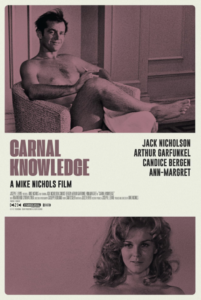
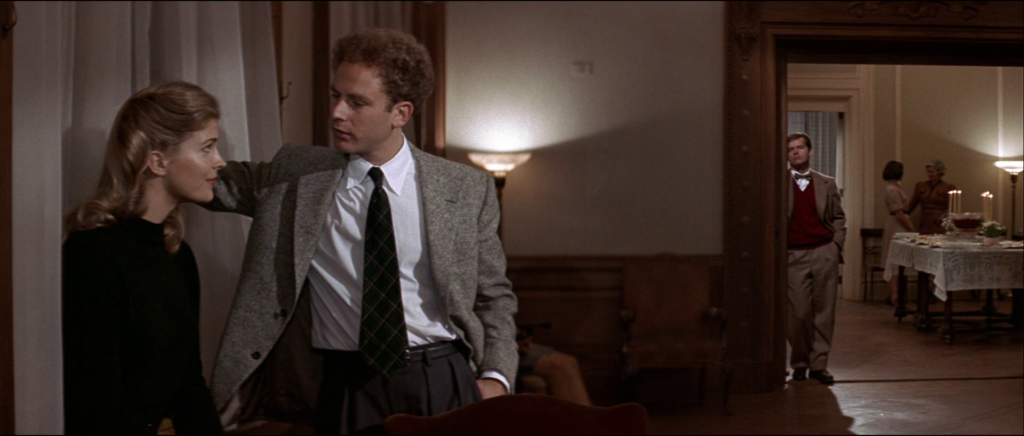
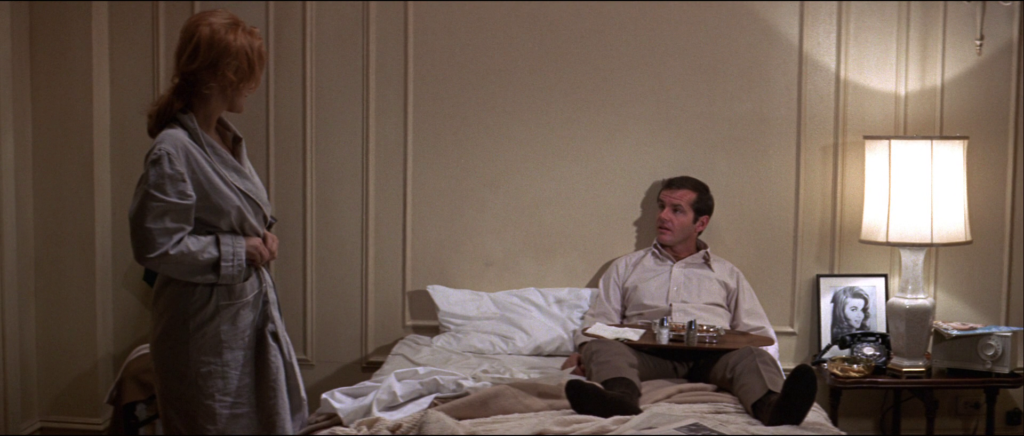
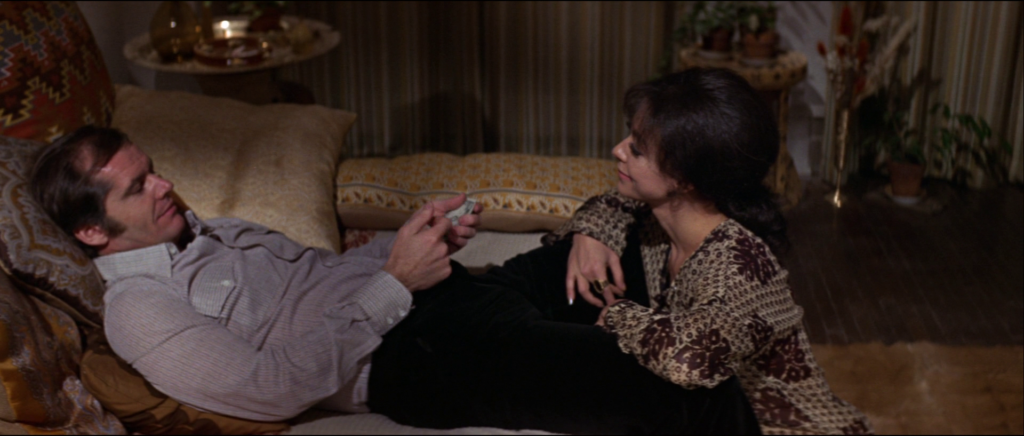
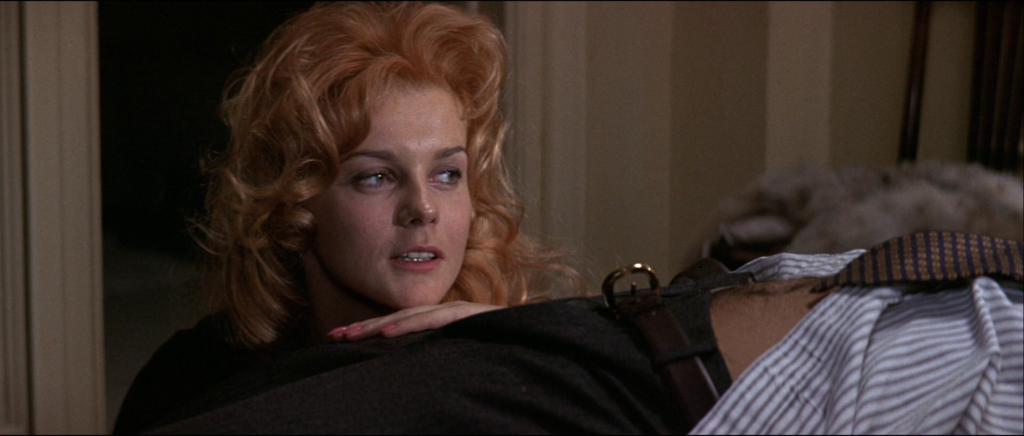
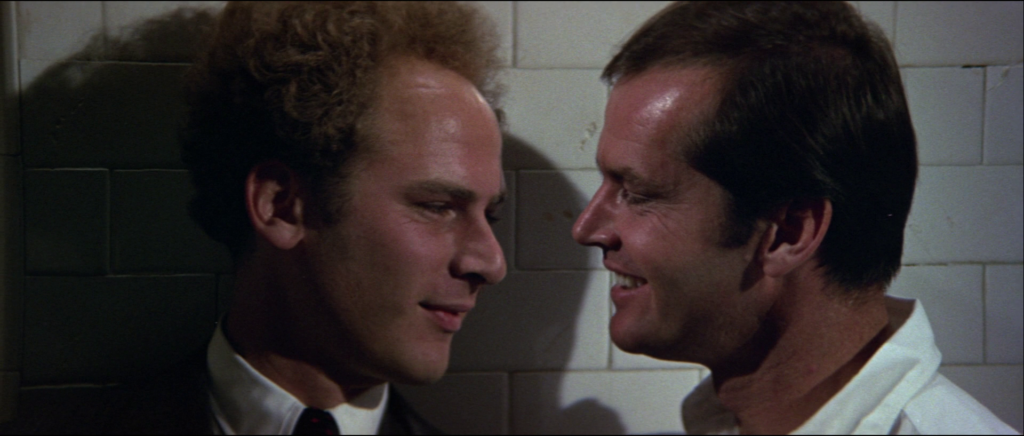

One thought on “Carnal Knowledge (1971)”
Rewatch (2/18/18). As posted in ‘Film Junkie’ (fb):
“I don’t feel anything anymore.”
‘Carnal Knowledge’ : It’s possible I hadn’t seen this film since its release (1971) when, even if I wasn’t particularly stupid, I still hadn’t the years of experience under my belt (as it were) that were necessary to get what the movie was saying. This isn’t a Mike Nichols film like ‘The Graduate’ – which many who like have seen multiple times. This isn’t the kind of film you’d feel compelled to rewatch. Some think it’s a very nasty film, or way too dark – or even misogynist. I wouldn’t go that far. (Being very familiar with Jules Feiffer’s work, and having appeared in a few stage productions, I don’t see convincing evidence of misogyny.)
It’s about two guys who represent extremes. One (Jack Nicholson) makes a serious if awkward attempt early in life to experience a deep love; when it seems to go wrong for him, he blocks any further genuine attempts and instead makes his needs purely physical. The other (Art Garfunkel) is more conservative and views his sexual needs in terms of what society expects from him. But since *he* doesn’t know what to expect from him, he keeps failing at a conservative pattern.
More directly (this is shown in the final scene with Rita Moreno), ‘CK’ says that, if you’re incapable of incorporating sex into a more meaningful relationship, your only ‘hope’ is to seek out others who are also incapable.
Much of the dynamics inside the two couples comes out in sort of throwaway lines – where you see that the women are more careful emotionally than the men. Ann-Margret’s Bobbie may seem a bit of a bimbo but, if you listen to her closely, you’ll hear how Nicholson has put her in a trap. Candice Bergan’s Susan knows that, even if a woman says certain key things (“But if you know somebody is not going to approve of what you are… well, you just don’t tell them.”), she will find herself sublimating to a guy’s demands if she expects to get into a relationship.
There is a lot going on in this film (it was one of Nichols’ personal favorites among his work). It’s probably a much better film than it’s given credit for… but I agree that it goes to some places that many won’t feel comfortable going to.
My favorite dialogue exchange: Garfunkel finally gets up the nerve to talk to Bergen at a university ‘mixer’, even though she actually gets the ball rolling. Her character is quite sharp when we first meet her.